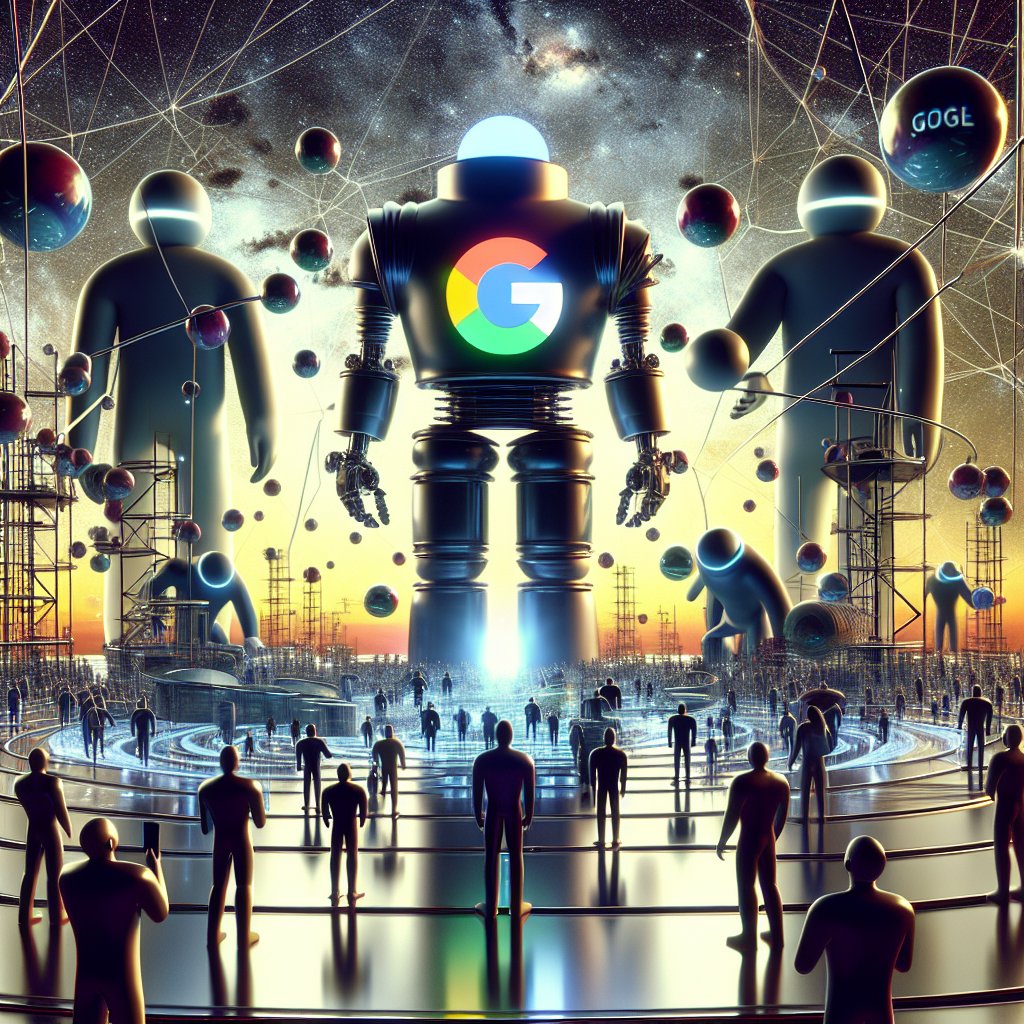Image created by AI
Google's AI Summaries in Search Results: A Double-Edged Sword for Publishers
Google's recent application of AI-driven summaries, known as AI Overviews, on its search pages has sparked significant apprehension among content creators and smaller search startups. These overviews present synthesized answers atop search results, potentially diverting users from the original content sources and altering the web ecosystem's dynamics.
Publishers who rely heavily on Google's traffic face an alarming predicament: allowing their content to feed Google's AI models may ultimately render their websites unnecessary, while blocking Google could lead to immediate invisibility and decline in web traffic. Joe Ragazzo, the publisher of Talking Points Memo, encapsulates this as a dire choice between instant or gradual decline.
Despite the anxiety within the publisher community, a Google spokesperson defends the AI Overviews as part of Google's mission to provide high-quality information and to enhance the opportunities for publishers. Google maintains that driving clicks to websites remains a core aspect of their value exchange, suggesting that AI Overviews generate more frequent user search engagement and content discovery.
The technical process involves Google's Googlebot, which bears the colossal task of crawling countless websites to create an expansive internet repository, a task that presents an onerous challenge to new entrants in the search engine market. As AI technology burgeons, startups eager to provide succinct AI-driven answers are compelled to navigate the immense web data, often resorting to costly content licensing deals that Google avoids due to its dominant position.
This dynamic amplifies the struggle of smaller AI firms and startups against Google's settled prowess. While some are forming partnerships to access content, Google continues to operate largely on its own terms, refraining from large-scale negotiations for content use outside a significant deal with Reddit, which garners Google a rich source of diverse data for AI enhancement.
The issue extends beyond independent startups. Even larger entities like OpenAI, with its SearchGPT, face hurdles as foundational websites like Amazon and Uniqlo block AI-specific crawlers, highlighting the intricate dance between data access and proprietary concerns in the emergent AI landscape.
Yet the growing discontent with Google's search dominance has not gone unnoticed by regulatory bodies. With the recent finding by a federal court that Google holds an illegal monopoly in online search, proposals are being considered that could see the tech giant required to share crawled data or even undergo structural changes, such as splitting its search services from its AI projects.
Publishers, meanwhile, are contemplating future strategies that transcend any single technology platform's dependency, focusing on direct reader relationships and diversified content distribution to fortify against the ever-shifting online environment. This encompasses forming lasting reader affiliations as an antidote to the existential threats posed by AI's ascension in search engine technology.










